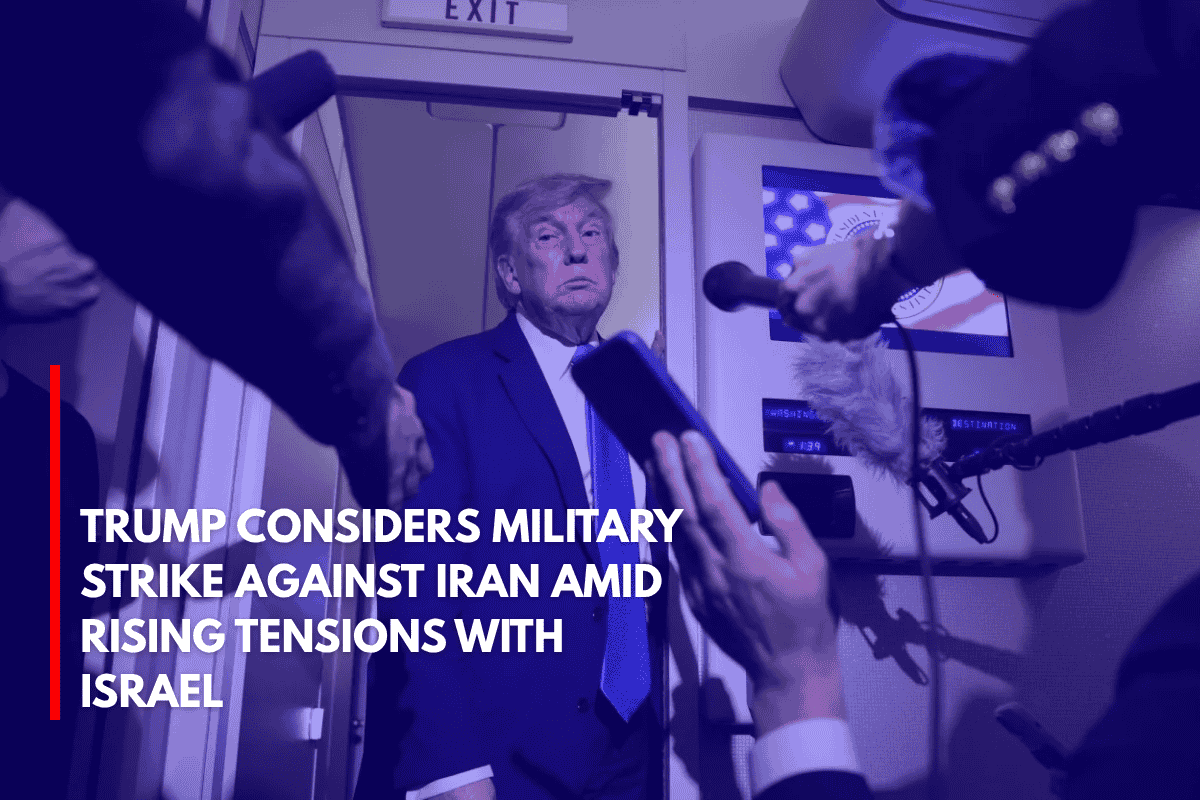Washington, D.C. – President Donald Trump is weighing the option of launching a military strike against Iran as part of a broader strategy to address tensions with the country, following a meeting with his top national security advisors on Tuesday.
According to current and former administration officials, this consideration is part of a series of responses Trump is evaluating as he demands Iran’s leader, Ayatollah Ali Khamenei, “surrender” in the ongoing conflict with Israel.
Growing Tensions and Military Threats
The discussions come after Trump warned Khamenei on Truth Social that the U.S. knows exactly where he is located, describing him as “an easy target” but noting that for now, the U.S. will not take lethal action. Despite this, Trump’s comments suggest the possibility of direct military involvement as the U.S. backs Israel’s efforts to deal with Iran.
Trump emphasized his frustration, writing, “Our patience is wearing thin.” He also made clear his stance on the situation: “UNCONDITIONAL SURRENDER!” Trump’s rhetoric indicates his willingness to escalate tensions further in support of Israel’s efforts to counter Iran’s influence in the region.
U.S. Involvement in the Israel-Iran Conflict
While the U.S. administration has repeatedly insisted it is not directly involved in Israel’s preemptive strike against Iran on Friday, the latest comments from Trump suggest that the U.S. might be ready to take a more aggressive stance.
The missile fire exchanged between Iran and Israel has intensified over the past few days, marking a significant escalation in the already fraught relationship between the two regional powers.
Reports surfaced earlier that Trump had vetoed a plan by Israel to assassinate Khamenei, but now, Trump is reportedly considering military options, including a potential attack on Iran’s Fordo nuclear facility, which houses underground uranium enrichment operations.
The U.S. would likely use its largest bunker buster bomb for such an operation, a powerful weapon capable of destroying such fortified sites.
Economic Impact and U.S. Military Movements
The escalating geopolitical tensions have had an immediate impact on U.S. financial markets, with stocks falling sharply on Tuesday. The Dow Jones Industrial Average dropped nearly 300 points (0.7%), the S&P 500 slid more than 0.8%, and the Nasdaq fell by 0.9%. Meanwhile, crude oil futures surged nearly 4.3%, reaching nearly $75 per barrel, amid concerns over potential disruptions to oil supplies in the Middle East.
In response to the rising tensions, the Pentagon is moving more warships and another aircraft carrier into the region, enhancing the U.S. military presence to assist Israel in intercepting Iranian missiles and projectiles, according to reports.
Trump’s Social Media Remarks
Ahead of his military threat, Trump posted on social media claiming that the U.S. now has “complete and total control of the skies over Iran.”
He mocked Iran’s air defense capabilities, claiming that despite Iran’s “good sky trackers,” they are no match for American military technology. “Nobody does it better than the good ol’ USA,” he wrote.
Tensions with International Leaders
Trump’s escalating rhetoric and military preparations have raised concerns internationally. On Monday, he abruptly returned to Washington, D.C. from the Group of Seven (G7) summit in Canada after French President Emmanuel Macron suggested that the U.S. might push for a ceasefire between Israel and Iran.
Trump swiftly rebuked Macron, calling him “publicity seeking” and denying that he had left the G7 for discussions on a ceasefire. “Stay Tuned!” Trump added, further fueling speculation about his next moves.











Leave a Reply